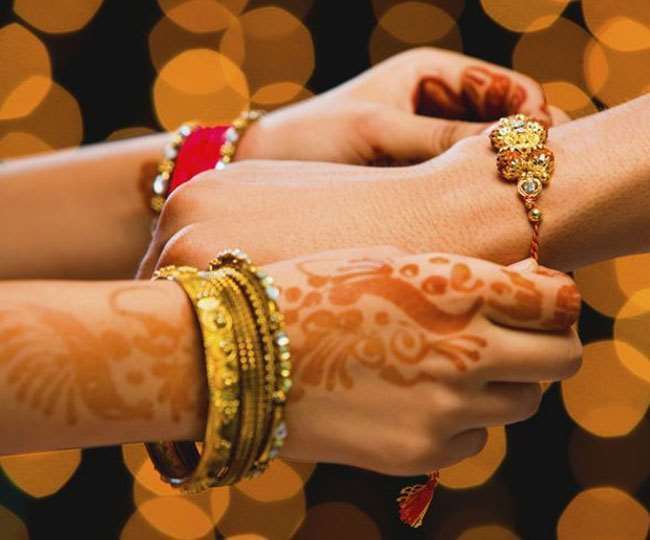Raksha Bandhan is deeply rooted in our mythology and yet finds emotional as well as practical significance in our day-to-day lives.
New Delhi: Raksha Bandhan is a Hindu festival and is not limited to any state but is celebrated by one and all in the country. Many non-Hindus also appreciate the relevance of this festival and celebrate it with great enthusiasm and fervour.
Behind every festival and its glory, there is an even glorious tale. According to popular mythology, Sachi, the wife of Lord Indra prepared a special charm for her husband and tied it around his wrist when he was going to fight a war against the ‘Asuras’. The Charm worked so well that Lord Indra and his forces won the war. Lord Indra and Sachi were husband and wife but the tradition soon percolated into an eternal bond between brother and sister. Its significance got entrenched into the cultural heritage of our great tradition.
And so, on this day the sister gives her brother her best wishes and ties a band on his wrist. In return the brother promises to protect her from all harm. A pooja is also performed in the morning where a female family member offers a Rakhi to the almighty and endorses the sacrosanct piety behind the tradition.
Once the ‘Pooja’ is prepared the sister will set up a thali containing sweets which contain saunf and mishri with water and rice. There is also a hint of vermillion which signifies purity and a diya which denotes the supreme power of Shiva and his light. Once the Arti is concluded, the Rakhi is tied and the brother showers his sister with gifts and his ever-permanent devotion to the welfare of his sister. Nowhere in the world a festival as enduring as Raksha Bandhan exists.
Raksha Bandhan usually falls in the month of July or August. According to the Indian calendar it is called the Shravan month and is always a full moon day.
During this time the divine firmament (sky) is under a celestial sovereignty. Every day of this month is considered auspicious for worshipping Lord Shiva. Shivratri is a festival celebrated when the cosmos is super charged with elements of Shiva that purify the mind, the senses, the body and the soul. It is only after Raksha Bandhan that all the festivals begin.
We welcome Ram Navami after Raksha Bandhan and then comes Dussehra, a festival which signifies the triumph of good over evil. And then of course we brace ourselves for Diwali, the biggest festival for the Hindus worldwide. Hindu mythology and culture are deeply rooted in the scientific realm of Karma and after life but the fruits of our existence and amplified with the kind of festivals we imbibe in our culture and also pass on to our children. Raksha Bandhan is one fine example of a practice which deep rooted in our mythology and yet finds emotional as well as practical significance in our day to day lives.
Deepti Chhabra is owner and consultant physiotherapist at Healing Hands Physiotherapy Clinic, Janakpuri, New Delhi.

